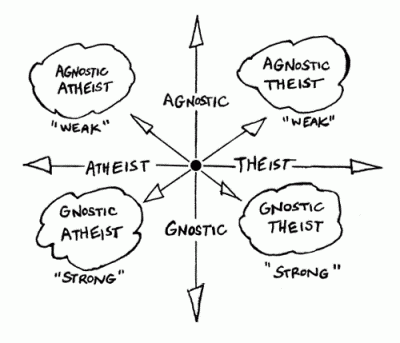5 most surprising things i learned as I turned to atheism
4. You Will Hear “Atheism Is a Religion” an Awful Lot
But it can’t be, can it? By its definition, it simply cannot be. What people really mean when they say this is that they are rather put out by the emerging evangelism among atheist groups, or they believe that atheists worship something — usually science. We’ll take that as an example because it’s as good as any: I have a great reverence for the scientific method, namely because it works. It may take a long time to get its answers, and because it relies on the human animal it can be led down some very dark turns, but all in all its Socratean processes are worthy of praise. Yet, I don’t worship it. It is not divine nor does it purport to be infallible. I can follow the research behind scientific conclusions and, with time and expertise, verify them for myself. These two are not the same, then, science and God. Not even close.
5. People May Think you Have Absolutely No Moral Code; Show Them Why That’s Liberating
This is probably the most often used statement when anyone talks about atheism. It seems that some people believe that atheists, without a religious moral code, are but a whim away from becoming crazed, child-killing cannibals. Fortunately, not so far.
It’s easy, though, to see that because religion has so often been the area from which we receive moral instruction that the two have become intertwined, but religion doesn’t have a special hold on morality. Exercising your conscience and sense of empathy along with a rigorous application of logic is enough to answer most if not all moral questions, no matter how difficult.
What’s more, I personally find it thrilling to not have a moral code. It has meant that I have been forced to think harder, to read more widely, and absorb more than ever before. That’s why, for me, realizing my atheism has been incredibly enriching and why, no matter the occasional negatives, I have found the process of coming out and being open to discourse about my atheism very rewarding — after all, no system of thought or belief should ever be immune to criticism and we are made stronger by accepting that.
Steve Williams

